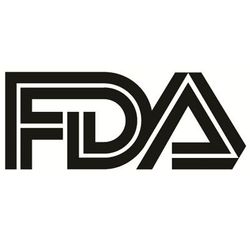FDA Approves Diazoxide Choline XR for Hyperphagia in Prader-Willi Syndrome
The FDA approval of diazoxide choline extended-release tablets (Vykat XR) was announced on March 26, 2025.

Credit: US Food and Drug Administration
The US Food and Drug Administration (FDA) has approved diazoxide choline extended-release tablets (Vykat XR), previously referred to as DCCR, for the treatment of hyperphagia in adults and children 4 years of age and older with Prader-Willi syndrome (PWS).
Announced by Soleno Therapeutics on March 26, 2025, the FDA’s decision makes diazoxide choline extended-release tablets the first approved therapy to address hyperphagia in individuals with PWS and availability is expected to begin as early as April 2025.1
“The FDA approval of [diazoxide choline extended-release tablets] is an incredible achievement for the entire PWS community,” said Jennifer Miller, MD, Professor of Pediatric Endocrinology at the University of Florida and a principal investigator in the diazoxide choline extended-release tablets clinical development program.1 “I am excited to have [diazoxide choline extended-release tablets] available to help treat hyperphagia, which is the most life-limiting aspect of PWS. Families of people with PWS have been prisoners in their own homes because of the need to provide constant, eyes-on supervision 24/7 with access to food being completely restricted.”
According to Soleno Therapeutics announcement, the FDA approval of diazoxide choline was based on data from a comprehensive clinical development program, with efficacy data established in a 16-week randomized withdrawal study period of Study 2-RWP (Study C602-RWP)—a phase 3 multi-center, randomized, double-blind, placebo-controlled trial.1
“The approval of [diazoxide choline extended-release tablets] is a significant milestone for Soleno and, most importantly, for the PWS community who have had no options to treat the most disruptive aspect of this disease,” said Anish Bhatnagar, MD, chief executive officer of Soleno.1
The withdrawal study enrolled 77 participants who had been on open-label diazoxide choline extended-release tablets treatment for two to four years in the preceding C602 study. Patients were randomized 1:1 to continue diazoxide choline extended-release tablets (n=38) or switch to placebo (n=39) for 4 months.2
The primary endpoint was the change from baseline in hyperphagia-related behaviors, measured by the Hyperphagia Questionnaire for Clinical Trials (HQ-CT), a validated, caregiver-completed nine-item questionnaire. Secondary endpoints included investigator assessments of overall illness severity (Clinical Global Impression of Severity, CGI-S) and change in condition (Clinical Global Impression of Improvement, CGI-I).2
Results demonstrated a significant worsening of hyperphagia-related behaviors in the placebo group compared with the diazoxide choline extended-release tablets group, with a mean change from baseline in the HQ-CT total score of 5.0 at week 16 (P = .0022), indicating a statistically significant and clinically meaningful effect. Secondary endpoints showed trends toward worsening in the placebo group compared with the diazoxide choline extended-release tablets group, with CGI-S (P = .08) and CGI-I (P = .09), suggesting a consistent pattern of deterioration upon treatment withdrawal.2
Safety data from the study suggested diazoxide choline extended-release tablets remained well tolerated throughout the study, with no new or unexpected safety signals.2
"This approval is a testament to the power of persistence, science, and advocacy," said Susan Hedstrom, executive director of the Foundation for Prader-Willi Research.1 "For years, families and researchers have worked towards a treatment option that truly addresses the complexities of PWS. Today, we take a major step forward in changing the future for individuals navigating hyperphagia associated with PWS."
References:
Soleno Therapeutics Inc. Soleno Therapeutics announces U.S. FDA approval of VYKATTM XR to treat hyperphagia in prader-willi syndrome. Soleno Therapeutics Inc. March 26, 2025. Accessed March 27, 2025. https://investors.soleno.life/news-releases/news-release-details/soleno-therapeutics-announces-us-fda-approval-vykattm-xr-treat.
Foundation for Prader-Willi Research. Soleno Therapeutics announces positive statistically significant top-line results from randomized withdrawal period of study C602 of DCCR for prader-willi syndrome. Foundation for Prader-Willi Research. September 26, 2023. Accessed March 27, 2025. https://www.fpwr.org/blog/soleno-therapeutics-announces-positive-statistically-significant-top-line-results-from-randomized-withdrawal-period-of-study-c602-of-dccr-for-prader-willi-syndrome.


